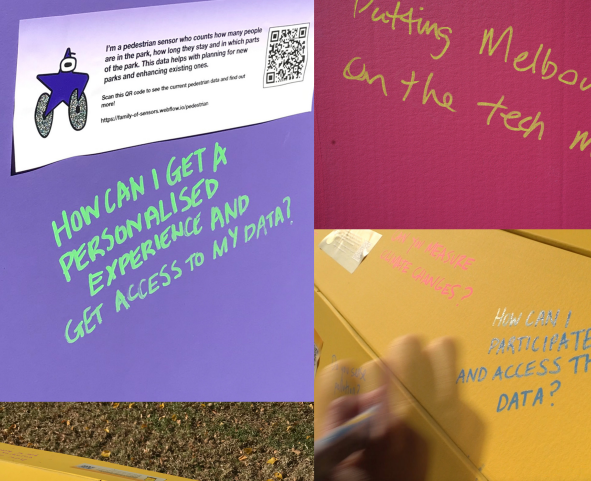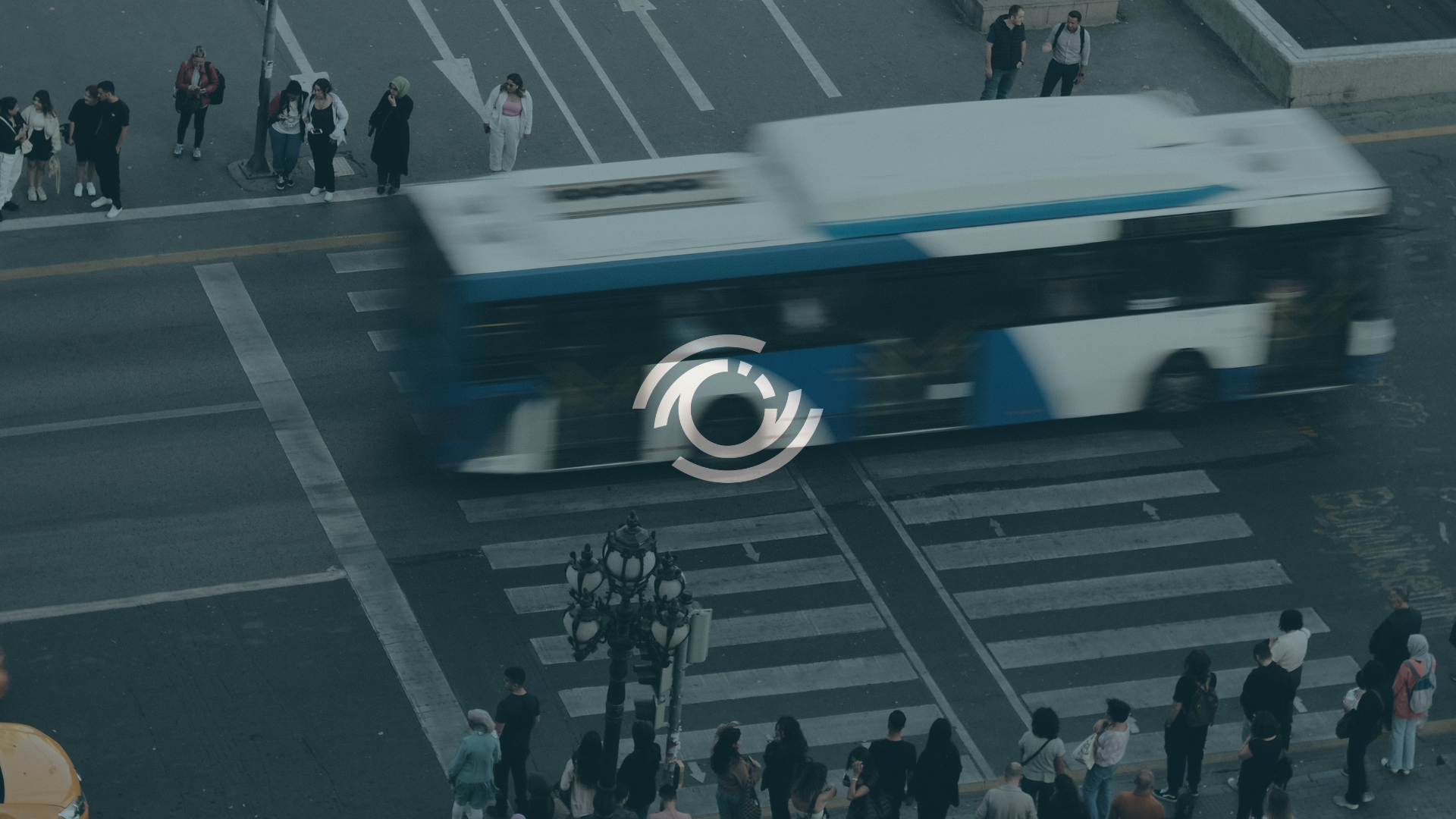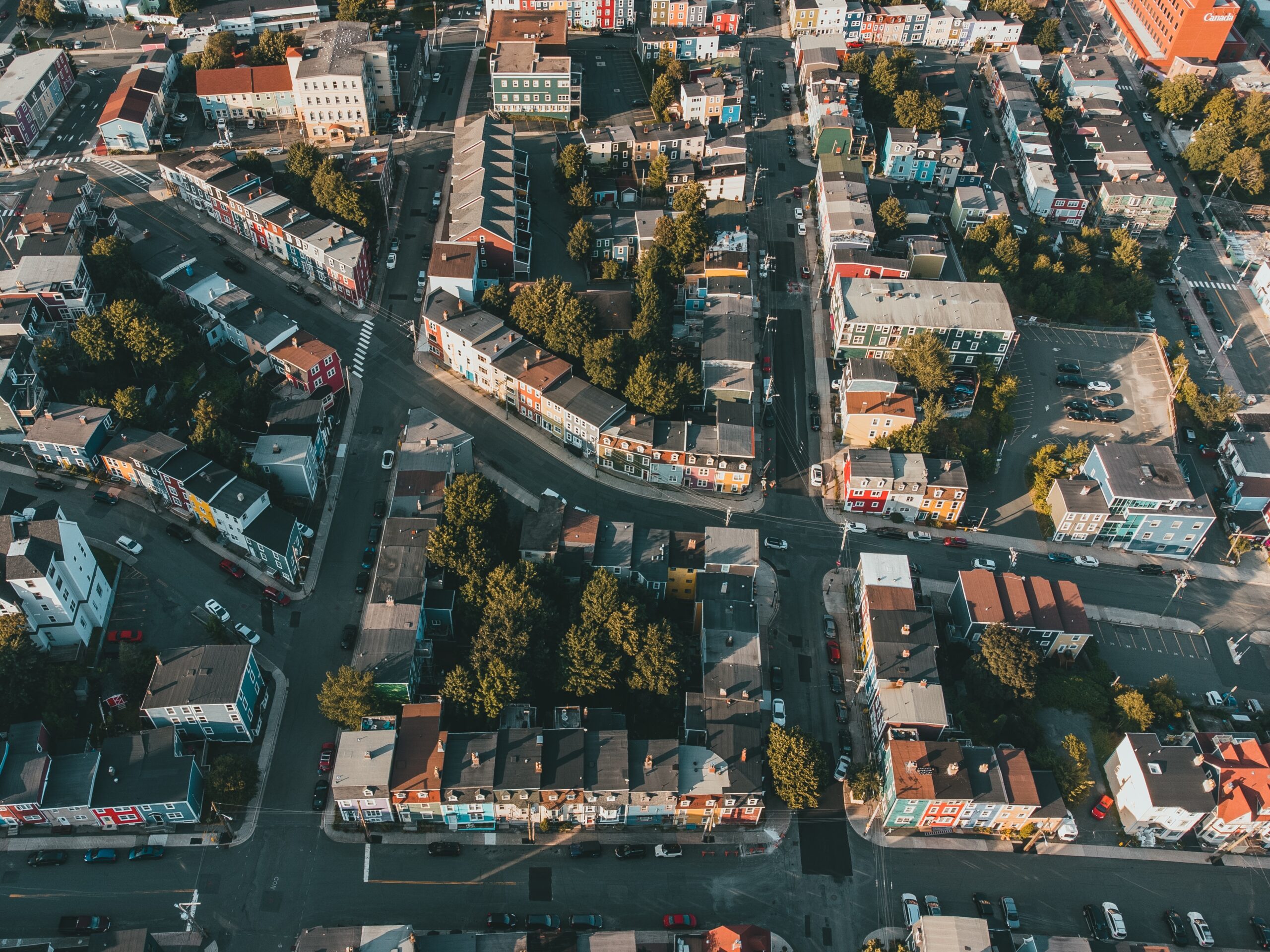Smart city: should citizens really fear for their privacy? The definitive answer
Citizens don’t know how data is collected in the smart city. This is a big problem for their privacy. Research finally could solve it.
Smart city: should citizens really fear for their privacy? The definitive answer
Citizens don’t know how data is collected in the smart city. This is a big problem for their privacy. Research finally could solve it.
Citizens do not know what and how data is collected in the smart city and fear for their privacy.
In this article we will discover a revolutionary experiment that could bring a real change in Smart cities.
Smart city: what is it? What are its benefits?
Since the concept of the smart city was born, public opinion has been split down the middle. There are people who are for it and those who are absolutely against it.
Before discussing what citizens think, it is best to introduce the smart city. What do smart cities do differently from other cities?
A smart city is a city that uses technology and devices, such as sensors, to collect data useful to manage resources efficiently and effectively. One, if not the main, goal of smart city is to improve the lives of its inhabitants.
Technological innovation, smart systems and big data have been the three key ingredients for the success of smart cities. These elements have, in fact, marked a real turning point in the management of the city in all its aspects.
Precisely, many cities around the world have implemented and are implementing smart city projects. For example, Singapore has been immediately a supporter of these projects. This Asian country, in fact, has been incorporating technology and data into public sectors, such as security and mobility for years.
Another more recent and revolutionary case concerns Neom. It is a city built from scratch and which lays its foundation on the use of Artificial Intelligence (AI) and on a sustainable approach.
It seems clear that smart cities have become a goal to achieve for many countries. As time goes by, the number of smart cities will increase, because they create benefits for citizens and the government in different ways. That is?
Actually smart cities help cities streamline difficult tasks. It is through data analysis that local governments can make decisions to help their communities.
Smart cities use vast sensor networks and advanced AI technologies to collect data on what can be measured. For example, sensors can analyze the flow of vehicles, recognizing and counting vehicles passing through an urban area. They can monitor crowds and detect the presence of suspicious people.
In short, sensors can analyze all the elements that make up the city. What are the benefits of these actions then? Let’s find out concretely.

All this information processed through data can help increase the security of citizens. Moreover, they are also useful in reducing traffic and more.
Smart city is, in fact, important for achieving sustainability goals. According to a McKinsey Global Institute report, smart cities have greenhouse gas emissions reduced by 10 to 15 percent. [1]
In addition, they can also reduce crime by 30 to 40 percent. According to a report by Deloitte, improvements in communication technology help departments communicate more efficiently. As a result, emergency services can act more quickly. [2]
Thus, a smart city needs artificial intelligence (AI) programs to process information rapidly and optimally to reach the goals just mentioned.
Reconnecting with the initial discussion on public opinion, unfortunately, data worries many citizens.
Data and privacy: the citizens’ problem
Despite the benefits brought by smart cities, there is a lot of fear on the part of citizens about the collection, storage and implementation of private data. Is it correct to be afraid?
In general, attention to the use of sensitive data is indeed high. In the city, on social media, we are dealing with data every day.
Due to this constant collection of data, people fear the loss of their privacy.
Therefore, if smart city benefits are put second to the data issue, a solution must be found. What might that be?
Governments should promote awareness in citizens to bridge the trust gap with new data collection technologies. Smart cities are, in fact, designed to serve citizens, so they must be structured considering their concerns.
Smart city projects should ensure that citizens are informed about data collection and analysis. For example, establishing standards and guidelines in all smart city projects could be an input.
Beyond everything, it is important to specify that privacy is guaranteed when city data is collected. Sensitive information, such as faces, license plates, are not visible and usable. They are blurred in accordance with GDPR.
The main problem results from the low or inexistent knowledge of data management on the part of citizens.
The case to take inspiration from: Melbourne and the data issue
From the privacy problem, Melbourne proposes an unprecedented solution through an experiment.
The research was conducted by the Emerging Technologies Research Lab (ETLab) at Monash University in collaboration with the City of Melbourne. It is assumed that by using AI and 5G, local governments can analyze mobility and weather changes to improve quality of life.
Therefore, the aim was to establish a pathway to facilitate the relationship between citizens and city data. The focus was on how this data can be used ethically to better manage the smart cities of the future.
A team of designers, ethnographers and smart city experts participated in the research. They used bold colors and created a ‘family’ of characters to allow engagement with the sensor installation.
Information was collected from participants who interacted with real-time data collection points from February to June 2021. We present some details of the research conducted in a public space.
One activity involved the use of cardboard Family of Sensors sculptures and digital tools and materials to create engagement for groups of people. Here is an example.
|
People interacting with the Family of sensors sculpture Source: Monash University |
There were also special installations of a Sensor Family of Sculptures in the park. They were inscribed with locally meaningful references and an embedded QR Code. It was a useful tool to learn how the municipality collected data.
Alternatively, there were printed explanatory labels for people who are without digital devices. [3]

|
Experiment activities in Melbourne Source: Monash University |
After describing the research, we can say that it achieves its initial goal. It is extremely helpful in developing new modes to share data and its management for the benefit of everyone.
Having public support is important. However, it is critical that any smart city innovation that depends on data collection is explained to citizens in a clear and transparent way, as research teaches us.
In conclusion, we can finally answer the question that opened this article. Should citizens fear for their privacy?
It must first be specified that smart city services comply with privacy laws. What needs to be solved is the issue related to data management. Cites must apply the transparent and engaging approach of this experiment. This is the only way to overcome the problem of fear for one’s privacy.
Only in this way, people will be safer and accept without opposition the use of AI and data in the city.
References:
-
- McKinsey & Co. Online version: https://www.mckinsey.com/capabilities/operations/our-insights/smart-cities-digital-solutions-for-a-more-livable-future
- Deloitte. Online version: https://www2.deloitte.com/ca/en/pages/public-sector/articles/emerging-tech-smart-cities-safer.html
- Monash University. Online version: https://www.monash.edu/__data/assets/pdf_file/0006/3025248/City-Sensing-Data-Futures-Report.pdf
© Copyright 2012 – 2023 | All Rights Reserved
Author: Rossana Cascione, Digital Marketing Specialist
Citizens do not know what and how data is collected in the smart city and fear for their privacy.
In this article we will discover a revolutionary experiment that could bring a real change in Smart cities.
Smart city: what is it? What are its benefits?
Since the concept of the smart city was born, public opinion has been split down the middle. There are people who are for it and those who are absolutely against it.
Before discussing what citizens think, it is best to introduce the smart city. What do smart cities do differently from other cities?
A smart city is a city that uses technology and devices, such as sensors, to collect data useful to manage resources efficiently and effectively. One, if not the main, goal of smart city is to improve the lives of its inhabitants.
Technological innovation, smart systems and big data have been the three key ingredients for the success of smart cities. These elements have, in fact, marked a real turning point in the management of the city in all its aspects.
Precisely, many cities around the world have implemented and are implementing smart city projects. For example, Singapore has been immediately a supporter of these projects. This Asian country, in fact, has been incorporating technology and data into public sectors, such as security and mobility for years.
Another more recent and revolutionary case concerns Neom. It is a city built from scratch and which lays its foundation on the use of Artificial Intelligence (AI) and on a sustainable approach.
It seems clear that smart cities have become a goal to achieve for many countries. As time goes by, the number of smart cities will increase, because they create benefits for citizens and the government in different ways. That is?
Actually smart cities help cities streamline difficult tasks. It is through data analysis that local governments can make decisions to help their communities.
Smart cities use vast sensor networks and advanced AI technologies to collect data on what can be measured. For example, sensors can analyze the flow of vehicles, recognizing and counting vehicles passing through an urban area. They can monitor crowds and detect the presence of suspicious people.
In short, sensors can analyze all the elements that make up the city. What are the benefits of these actions then? Let’s find out concretely.

All this information processed through data can help increase the security of citizens. Moreover, they are also useful in reducing traffic and more.
Smart city is, in fact, important for achieving sustainability goals. According to a McKinsey Global Institute report, smart cities have greenhouse gas emissions reduced by 10 to 15 percent. [1]
In addition, they can also reduce crime by 30 to 40 percent. According to a report by Deloitte, improvements in communication technology help departments communicate more efficiently. As a result, emergency services can act more quickly. [2]
Thus, a smart city needs artificial intelligence (AI) programs to process information rapidly and optimally to reach the goals just mentioned.
Reconnecting with the initial discussion on public opinion, unfortunately, data worries many citizens.
Data and privacy: the citizens’ problem
Despite the benefits brought by smart cities, there is a lot of fear on the part of citizens about the collection, storage and implementation of private data. Is it correct to be afraid?
In general, attention to the use of sensitive data is indeed high. In the city, on social media, we are dealing with data every day.
Due to this constant collection of data, people fear the loss of their privacy.
Therefore, if smart city benefits are put second to the data issue, a solution must be found. What might that be?
Governments should promote awareness in citizens to bridge the trust gap with new data collection technologies. Smart cities are, in fact, designed to serve citizens, so they must be structured considering their concerns.
Smart city projects should ensure that citizens are informed about data collection and analysis. For example, establishing standards and guidelines in all smart city projects could be an input.
Beyond everything, it is important to specify that privacy is guaranteed when city data is collected. Sensitive information, such as faces, license plates, are not visible and usable. They are blurred in accordance with GDPR.
The main problem results from the low or inexistent knowledge of data management on the part of citizens.
The case to take inspiration from: Melbourne and the data issue
From the privacy problem, Melbourne proposes an unprecedented solution through an experiment.
The research was conducted by the Emerging Technologies Research Lab (ETLab) at Monash University in collaboration with the City of Melbourne. It is assumed that by using AI and 5G, local governments can analyze mobility and weather changes to improve quality of life.
Therefore, the aim was to establish a pathway to facilitate the relationship between citizens and city data. The focus was on how this data can be used ethically to better manage the smart cities of the future.
A team of designers, ethnographers and smart city experts participated in the research. They used bold colors and created a ‘family’ of characters to allow engagement with the sensor installation.
Information was collected from participants who interacted with real-time data collection points from February to June 2021. We present some details of the research conducted in a public space.
One activity involved the use of cardboard Family of Sensors sculptures and digital tools and materials to create engagement for groups of people. Here is an example.
| Source: Monash University |
There were also special installations of a Sensor Family of Sculptures in the park. They were inscribed with locally meaningful references and an embedded QR Code. It was a useful tool to learn how the municipality collected data.
Alternatively, there were printed explanatory labels for people who are without digital devices. [3]

|
Experiment activities in Melbourne Source: Monash University |
After describing the research, we can say that it achieves its initial goal. It is extremely helpful in developing new modes to share data and its management for the benefit of everyone.
Having public support is important. However, it is critical that any smart city innovation that depends on data collection is explained to citizens in a clear and transparent way, as research teaches us.
In conclusion, we can finally answer the question that opened this article. Should citizens fear for their privacy?
It must first be specified that smart city services comply with privacy laws. What needs to be solved is the issue related to data management. Cites must apply the transparent and engaging approach of this experiment. This is the only way to overcome the problem of fear for one’s privacy.
Only in this way, people will be safer and accept without opposition the use of AI and data in the city.
References:
-
- McKinsey & Co. Online version: https://www.mckinsey.com/capabilities/operations/our-insights/smart-cities-digital-solutions-for-a-more-livable-future
- Deloitte. Online version: https://www2.deloitte.com/ca/en/pages/public-sector/articles/emerging-tech-smart-cities-safer.html
- Monash University. Online version: https://www.monash.edu/__data/assets/pdf_file/0006/3025248/City-Sensing-Data-Futures-Report.pdf
© Copyright 2012 – 2023 | All Rights Reserved
Author: Rossana Cascione, Digital Marketing Specialist














Leave A Comment